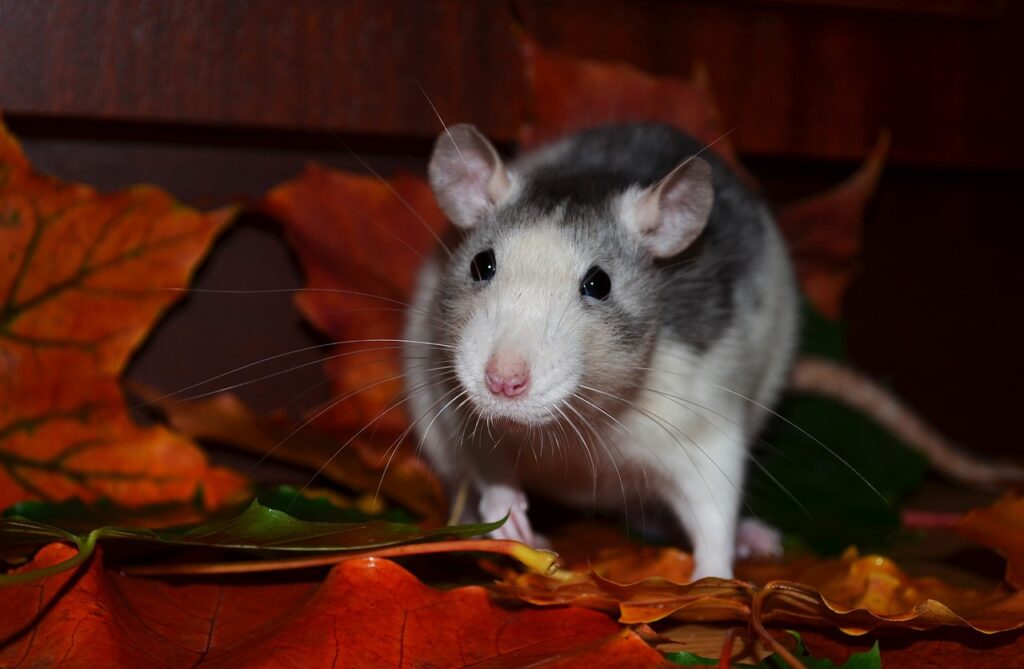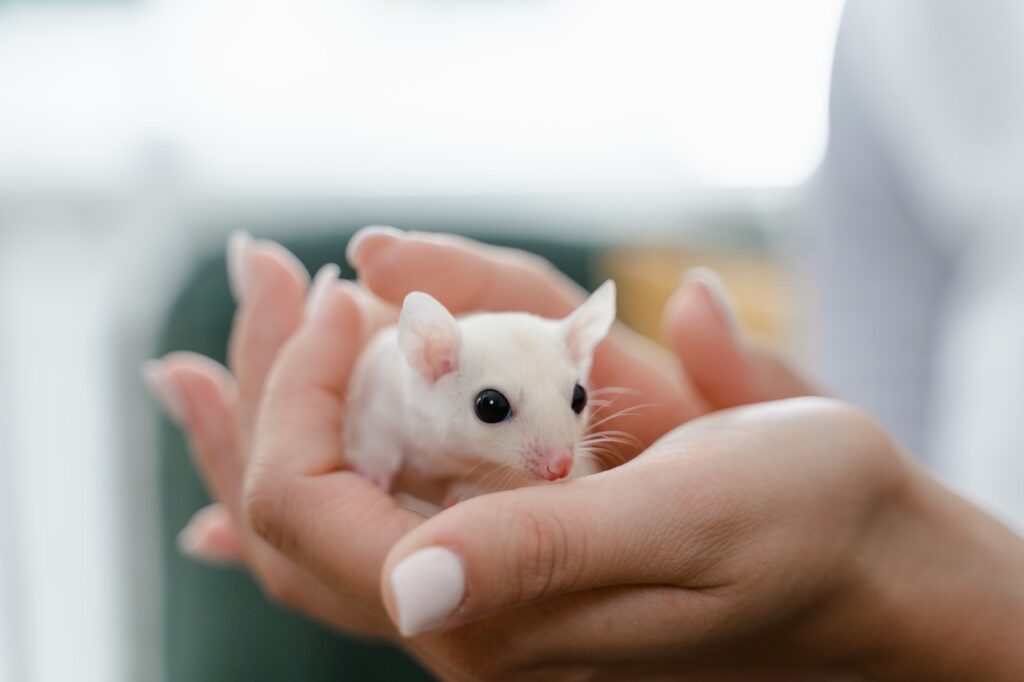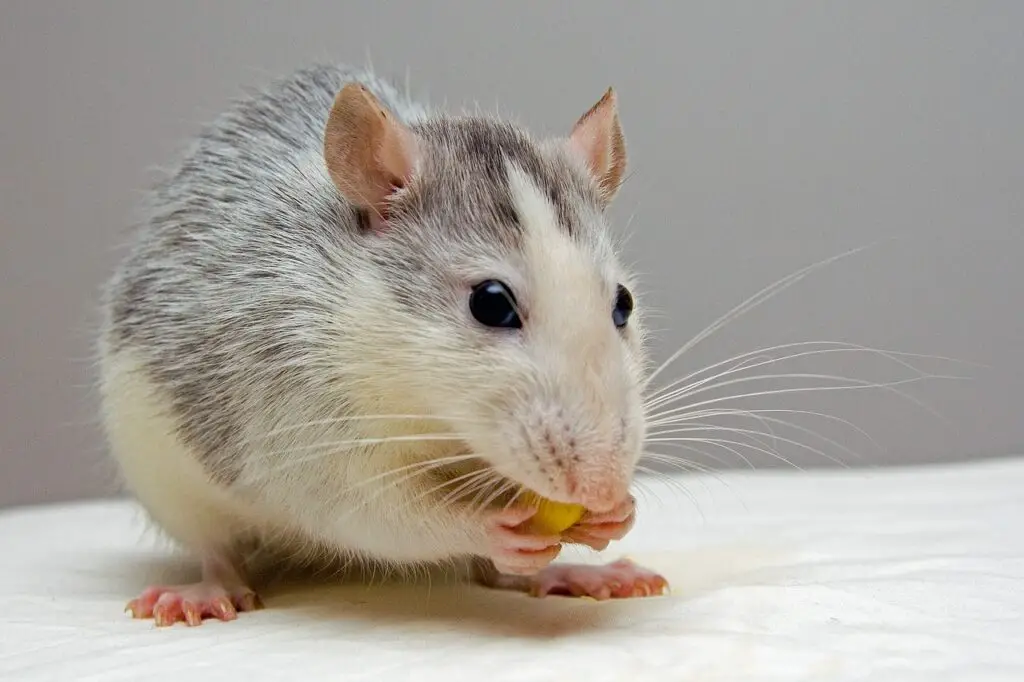Due to their intelligence and affectionate nature, rats are becoming increasingly popular as pets. If you are currently thinking about getting one, you might be wondering whether pet rats need vaccines or not.
Contents
Do Pet Rats Need Vaccines?
No, pet rats don’t need vaccines. Unlike dogs and cats, there are no vaccines specifically designed for rats. After all, they are not prone to the same diseases as other pets. Diseases like parvovirus, distemper, and rabies are not a concern for rats.
However, this doesn’t mean you shouldn’t monitor your rat’s health. Rats, like any other animal, can develop health problems. The most common ones among rats are respiratory infections, mites, and tumors.
Therefore, to prevent these issues, you should keep your pet rat’s environment clean and provide them with a healthy diet and exercise.
Preventive Cares for Pet Rats
Knowing whether pet rats need vaccines or not, allows you to learn about other methods to prevent illnesses. For instance, regular check-ups at the vet are great. This way, I will be able to detect if there are any potential health problems.
Also, it is recommended to clean their teeth on a regular basis to avoid dental and mouth diseases. Then, you must ensure they are in a comfortable environment. These animals require plenty of room to run, play, sleep, and even climb.
Therefore, make sure their cage is large enough and that it is cleaned on a regular basis to prevent bacteria buildup. Lastly, you must provide them with a nutritious and well-balanced diet. Feeding them foods high in sugar or fat can lead to obesity and other health problems.
Protecting Your Pet Rat
If you have other animals at home, you must vaccinate them to prevent the spread of diseases. While rats are not prone to getting the same diseases as dogs and cats, they can still get infected by a few of them.
For example, while rats rarely get rabies, they can get distemper, which could severely damage them. Also, if they are in contact with an infected dog or cat, they can contract herpes. Therefore, it is important for all of your pets to be vaccinated for them to be comfortable and healthy.
Signs of Illness in Rats
Now that you’ve learned that pet rats do not require vaccines, you must know their signs of sickness. The most common sign is lethargy and changes in their behavior. If your rat is very active and suddenly starts acting tired, you should bring them to me.
Other common signs are loss of appetite and diarrhea. If you notice your rat’s stool is too loose or watery, your pet could have digestive problems. Lastly, if you hear they are wheezing, they might have trouble breathing, which is usually a life-threatening symptom.
It is important to remember that not all vets can care for an exotic animal such as a rat. Therefore, if you hear your rat making wheezing sounds, bring them to my vet as soon as possible.
Common Diseases in Rats
While rats aren’t prone to the same diseases as cats and dogs, they are still susceptible to various diseases. If left untreated, these illnesses can be fatal, so you must constantly check your pet. Here are some of the most common diseases that rats can get.
- Respiratory Infections: These infections can be caused by bacteria, viruses, or parasites. The symptoms include sneezing, coughing, wheezing, and difficulty breathing.
- Skin Infections: These infections can be caused by various bacteria and fungi. The symptoms include hair loss, scabs, and redness on their skin.
- Tumors: Rats are prone to developing tumors as they age. While they are often benign, they can be a sign of illness.
- Parasites: Like any other animal, rats can be infested with mites, lice, fleas, and even intestinal parasites that affect their stomachs. These can cause skin problems and other health issues.
- Digestive Problems: If rats have an improper diet or an underlying health condition, they can experience digestive problems. These will cause symptoms such as diarrhea and constipation.
Common Myths About Rat’s Health
There are many common misconceptions about rats, their health, and their hygiene. Many people believe that these animals are filthy and dangerous. While in reality, rats are clean and sociable animals. They aren’t any more susceptible to illness than other pets.
Another common misconception is that they carry contagious diseases such as rabies. However, rats are very unlikely to develop and spread rabies. In fact, there have been no reports of a rat transmitting rabies to a human.
While there are no concrete reasons why rats cannot contract this disease, the truth is that they are not as dangerous or filthy as many people believe. Actually, rats are known to be excellent groomers, cleaning themselves more frequently and thoroughly than cats.
Related Questions
Here are some frequently asked questions about pet rats and vaccines.
Do Pet Rats Carry Diseases?
Yes, as with any other pet, rats can carry diseases. However, remember they don’t spread more illnesses than other pets such as cats and dogs. Therefore, if you give them proper care, rats will live healthy life without sicknesses.
Is Breathing Rat Urine Harmful?
Yes, breathing urine from a rat can be harmful to humans. Their urine can spread hantaviruses to the air, infecting whoever breathes it. This is why it is important to keep their cage as clean as possible, free of any urine and droppings.
What Is the Lifespan of a Pet Rat?
The average lifespan of a pet rat is one to two years. However, if cared for properly, some can live for four years. The oldest pet rat has lived to be seven years old, almost doubling their expected lifespan. Therefore, if you give them great care, they will last longer.
Conclusion
Since rats are less prone to contracting the same diseases as cats and dogs, they don’t need vaccines. However, they can still get infected, so you need to give them proper care with great nutrition and a good environment.



